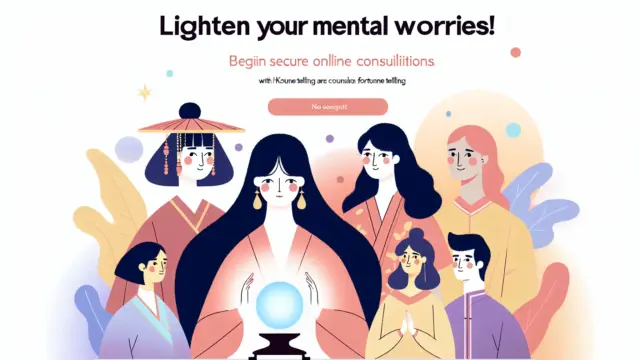Building trust in relationships is essential for creating a strong and lasting bond with your partner. Trust forms the foundation of any relationship, allowing both individuals to feel secure and valued. Without it, misunderstandings can fester, and emotional distance can grow, making it difficult to connect on a deeper level.
In this article, we’ll explore practical steps to establish and nurture trust, helping you create a more fulfilling partnership. From effective communication techniques to recognizing early signs of misunderstandings, you’ll find valuable insights that can transform your relationship dynamics. Whether you’re looking to strengthen your current bond or address past issues, there’s something here for everyone.
Join us as we delve into the importance of trust and how it can enhance your connection with your partner. Let’s embark on this journey together and discover ways to foster a loving and trusting environment that allows both partners to flourish.
- Understand the vital role of trust in relationships.
- Learn effective communication strategies to enhance connection.
- Discover practical tips for resolving misunderstandings and deepening trust.
The Importance and Definition of Trust in Relationships
Benefits of Trust
Building trust within a relationship offers numerous benefits that can significantly enhance your connection with your partner. When trust is present, both partners feel safe and secure, allowing for open and honest communication. This sense of security fosters a deeper emotional bond, enabling both individuals to share their thoughts and feelings without fear of judgment.
Moreover, trust leads to greater intimacy, both emotionally and physically. When you know your partner has your back, it creates a nurturing environment that encourages vulnerability. As a result, you can explore new dimensions of your relationship, leading to a more fulfilling partnership.
Lastly, trust helps in conflict resolution. Conflicts are inevitable in any relationship, but when trust is established, resolving disagreements becomes much more manageable. Partners are likely to approach conflicts with a mindset of collaboration rather than competition, which ultimately leads to healthier resolutions.
- Enhanced emotional connection between partners.
- Increased intimacy and vulnerability.
- Improved conflict resolution and collaboration.
What Forms the Basis of Trust?
Understanding what forms the basis of trust is crucial in any relationship. The first fundamental element is consistent behavior. When your actions align with your words, it reinforces your partner’s belief in you. This consistency helps to build a reliable foundation, as your partner knows what to expect from you.
Another vital aspect is transparency. Sharing your thoughts and feelings openly creates an atmosphere of honesty. It encourages both partners to express their needs and concerns without holding back, which is essential for establishing trust. Additionally, being vulnerable with one another allows for deeper connections to blossom.
Lastly, mutual respect is a cornerstone of trust. Valuing each other’s opinions, boundaries, and emotions fosters a sense of safety. This respect enables both partners to feel heard and understood, further solidifying the trust between them.

If you’re interested in enhancing the emotional connection in your relationship, you might find value in exploring our article on Ways to Show Love Through Actions! Strengthen Your Bond with Your Partner. This piece delves into practical techniques for expressing love, which can further solidify the trust and intimacy you’ve been working to build.
- Consistent behavior reinforces reliability.
- Transparency encourages open communication.
- Mutual respect fosters safety and understanding.
How to Communicate with Your Partner
Effective Communication Techniques
Establishing trust in relationships greatly relies on how effectively you communicate with your partner. One of the most important techniques is active listening. This means truly paying attention to what your partner is saying, without planning your response while they speak. When you show that you value their words, it fosters a sense of respect and understanding that reinforces trust.
Another technique is to express your feelings honestly and openly. Using “I” statements can be particularly helpful. For example, saying “I feel hurt when…” instead of “You always make me feel…” can prevent your partner from feeling attacked and encourages a more open dialogue. This way, both partners feel safe to share their emotions, which is crucial for building trust.
Additionally, practicing empathy plays a vital role in effective communication. Try to understand your partner’s perspective, even if you don’t necessarily agree. Validating their feelings creates a supportive environment where both individuals can express themselves freely. This mutual support helps to establish a stronger bond and a deeper level of trust.
Lastly, setting aside dedicated time for conversations can significantly improve your communication. Life can get busy, and without intentional effort, meaningful discussions can fall by the wayside. Regular check-ins allow both of you to discuss feelings, concerns, and joys, reinforcing your partnership and building trust over time.
- Active listening fosters respect and understanding.
- Using “I” statements prevents defensiveness.
- Empathy creates a supportive communication environment.
The Importance of Non-Verbal Communication
Non-verbal communication is just as crucial as what you say. Your body language, facial expressions, and even tone of voice can convey messages that words sometimes cannot. For instance, maintaining eye contact shows your partner that you are engaged and interested in the conversation. This simple act can strengthen the feeling of connection and trust.
Moreover, being aware of your non-verbal cues can help you align your messages with your intentions. If your words say one thing, but your body language contradicts them, it can lead to misunderstandings. For example, crossing your arms might signal defensiveness or discomfort, even if you are trying to express openness. By being mindful of these signals, you can communicate more effectively and build trust in your relationship.
- Body language conveys unspoken messages.
- Eye contact enhances connection and engagement.
- Aligning verbal and non-verbal messages prevents misunderstandings.
Steps to Resolve Misunderstandings
How to Identify Misunderstandings Early
Recognizing misunderstandings in relationships can be challenging, but it’s vital for maintaining trust. The first step is to pay attention to changes in your partner’s behavior or mood. If they seem distant or frustrated, it might be a sign that something is amiss. Being observant allows you to catch potential issues before they escalate.
Another crucial aspect is to foster an environment where both partners feel comfortable expressing their feelings. Encourage open discussions about emotions and concerns. When both individuals feel safe to voice their thoughts, misunderstandings can be addressed promptly, preventing them from growing into larger issues.
- Pay attention to changes in your partner’s behavior.
- Foster an environment for open emotional discussions.
- Encourage honesty to catch misunderstandings early.
How to Engage in Constructive Dialogue
Once you’ve identified a misunderstanding, engaging in constructive dialogue is essential to resolving it. Start by approaching the conversation with a calm and open mindset. It’s important to express your feelings without placing blame. Use “I” statements to communicate how the situation affects you, like saying, “I felt hurt when…” rather than pointing fingers.
Next, practice active listening. This means giving your partner your full attention and showing that you value their perspective. Reflect back what they say to ensure you understand their viewpoint. This not only demonstrates empathy but also helps clarify any misconceptions right away.
Another effective technique is to ask open-ended questions. This invites your partner to share their thoughts and feelings more deeply. Questions like “How did that make you feel?” can lead to more meaningful discussions, allowing both partners to explore the root of the misunderstanding.
Lastly, work together to find solutions. Collaborate on ways to prevent similar misunderstandings in the future. This could involve setting clear expectations or establishing regular check-ins to ensure both partners feel heard and valued. By taking these steps, you can build trust and strengthen your relationship.

For those looking to enhance their communication skills in relationships, you might find it beneficial to explore the insights offered in the article “Enhance Your Compatibility with Your Partner! Secrets to Heartfelt Communication“. This piece delves into practical strategies for improving compatibility through effective communication, which aligns perfectly with the techniques discussed in this article.
- Approach conversations with a calm and open mindset.
- Use active listening to demonstrate empathy.
- Ask open-ended questions to deepen understanding.
- Collaborate on solutions to prevent future misunderstandings.
Practical Advice for Deepening Trust
Ways to Build Trust in Daily Life
Building trust in relationships is not just about significant gestures; it often involves small, consistent actions in daily life. One way to enhance trust is to practice reliability. This means following through on promises, no matter how small they may seem. When your partner sees that you are dependable, it reinforces their belief in you and the relationship.
Another effective method is to be open about your daily experiences. Sharing your thoughts and feelings about your day fosters intimacy and helps your partner feel involved in your life. Just like you might discuss your work, hobbies, or even your challenges, this openness cultivates a sense of partnership and closeness that is essential for building trust.
- Practice reliability by following through on commitments.
- Share daily experiences to foster intimacy.
- Engage in activities that encourage teamwork and collaboration.
Nurturing Long-Term Relationships
Cultivating trust in long-term relationships requires continuous effort and dedication. One way to nurture this trust is by regularly engaging in open discussions about your feelings and expectations. These conversations can help both partners align their goals and desires, ensuring that each person feels valued and understood.
Additionally, practicing forgiveness is crucial for deepening trust. Misunderstandings and mistakes are inevitable in any relationship, but how you address them can make all the difference. By choosing to forgive and move forward, you demonstrate a commitment to the relationship, reinforcing the bond of trust between you.
Lastly, creating shared experiences can greatly enhance trust. Whether it’s taking a trip together, starting a new project, or simply enjoying a hobby as a couple, these shared moments help build a collaborative spirit. They remind both partners that they are in this together, which ultimately strengthens the foundation of trust over time.

If you’re interested in enhancing your relationship further, you might find value in our article titled Discover Free Love Compatibility Tests! Tips to Deepen Your Partnership!. It provides insights into how understanding compatibility can strengthen your bond and offer practical tips for nurturing your partnership.
- Engage in open discussions about feelings and expectations.
- Practice forgiveness to address misunderstandings.
- Create shared experiences to deepen your connection.
Summary
Building trust in relationships is a journey that requires attention, dedication, and consistent effort. As we’ve explored throughout this article, trust is not just a feeling; it’s built through everyday actions and effective communication. By establishing reliable behaviors, being open about your thoughts and feelings, and engaging in constructive conversations, you can create a strong foundation of trust that nurtures your partnership.
Moreover, nurturing relationships over time involves regular discussions about feelings and expectations, practicing forgiveness, and sharing experiences together. These practices not only strengthen your bond but also ensure that both partners feel valued and heard. Remember, trust is a two-way street; both individuals must invest in maintaining and deepening it.
In conclusion, as you work to build trust in your relationship, keep in mind that it is an ongoing process. By applying the strategies discussed, you can establish a more fulfilling and secure partnership that stands the test of time.
- Trust is built through consistent actions and effective communication.
- Regular discussions and shared experiences strengthen the bond between partners.
- Practicing forgiveness is essential for maintaining trust in long-term relationships.
We’d love to hear your thoughts! How do you approach building trust in your relationships? Share your experiences in the comments below!









Comment